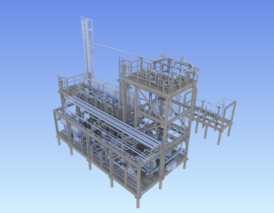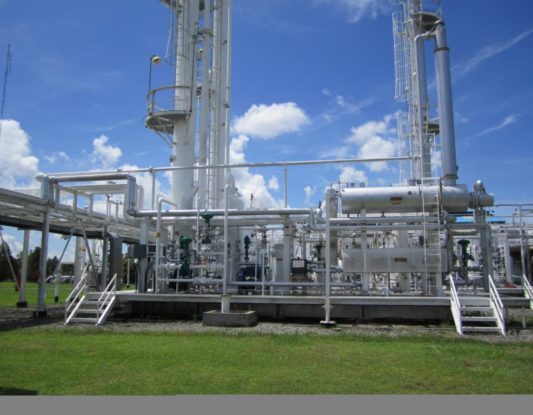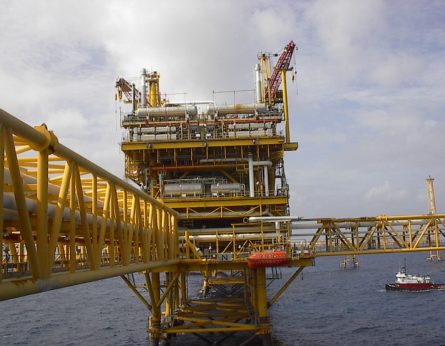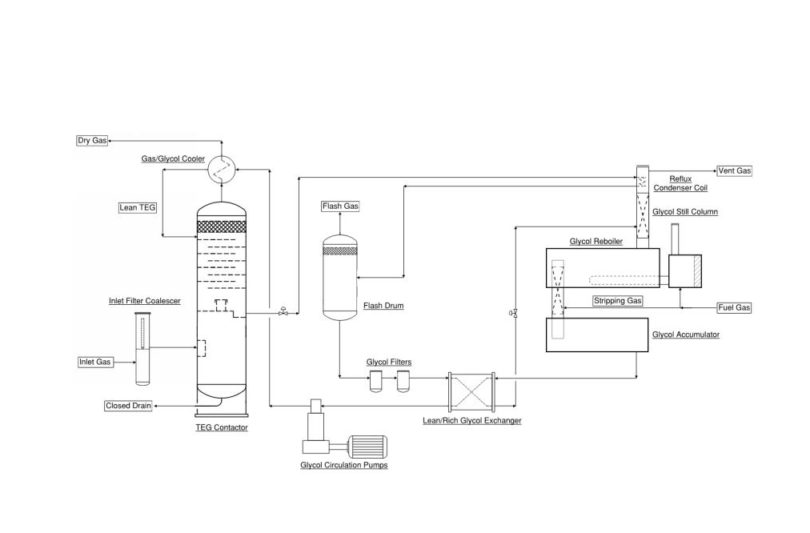DEHYDRATION DESIGN CONSIDERATIONS
Lean Glycol Concentration
• Basis for dry gas water content
• Typically 98.8 – 99.95 wt% TEG purity
Gas/Liquid Contact
• TEG Circulation rate
• Trays or packing in the contactor
Reboiler Temperature
• Vapourize water content from rich TEG
• Regenerated lean TEG concentration
• Avoid glycol degradation
Stripping Gas
• Optional, provides additional water removal
• High purity TEG concentration
BTEX Removal
• By product of TEG dehydration process
• Environmental emissions
• BTEX treatment unit to handle still column vent gas





